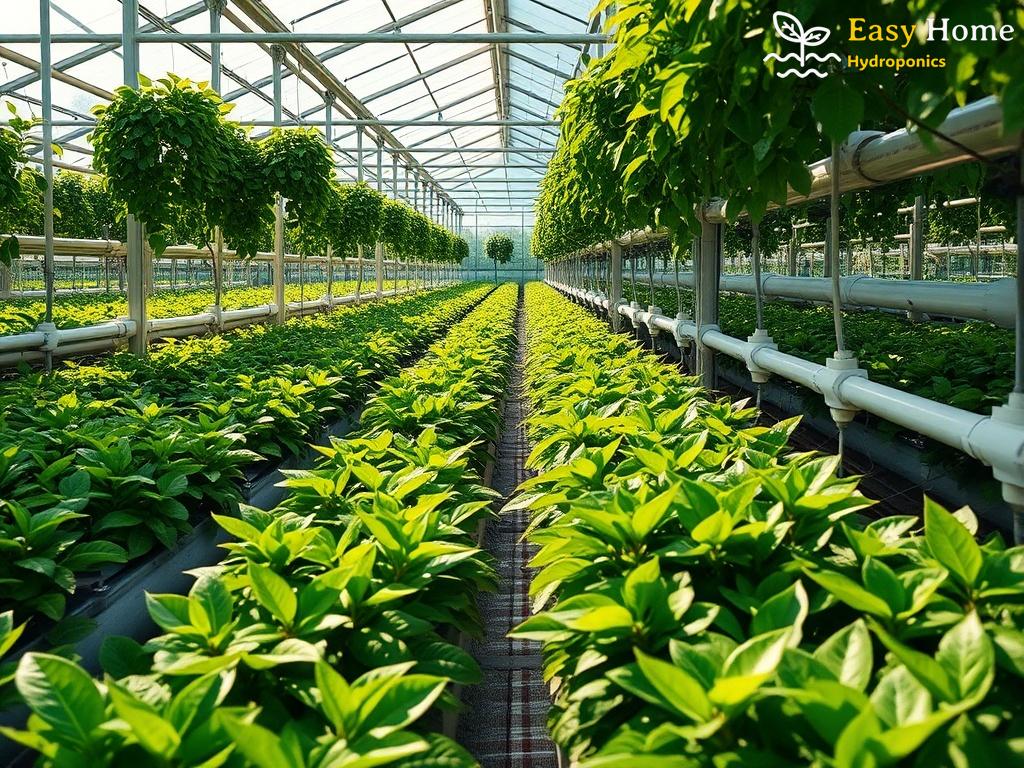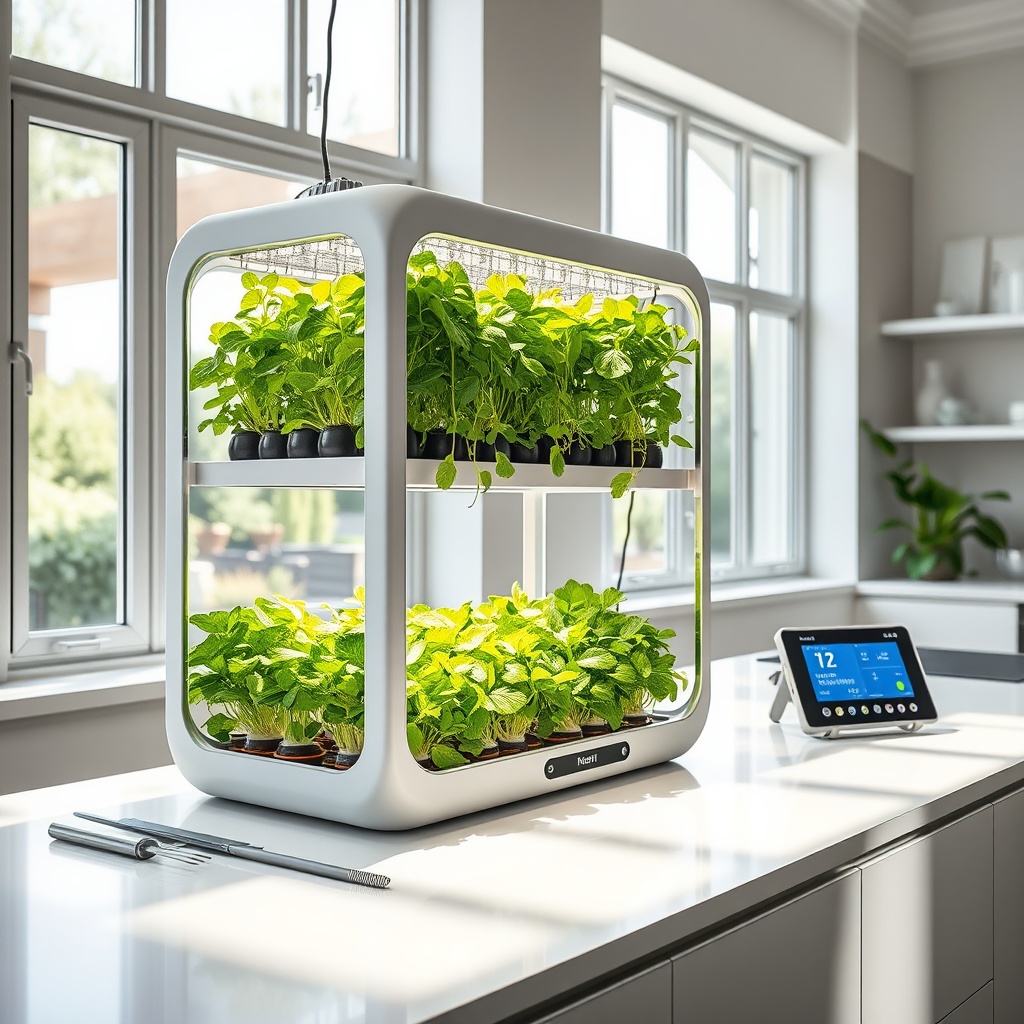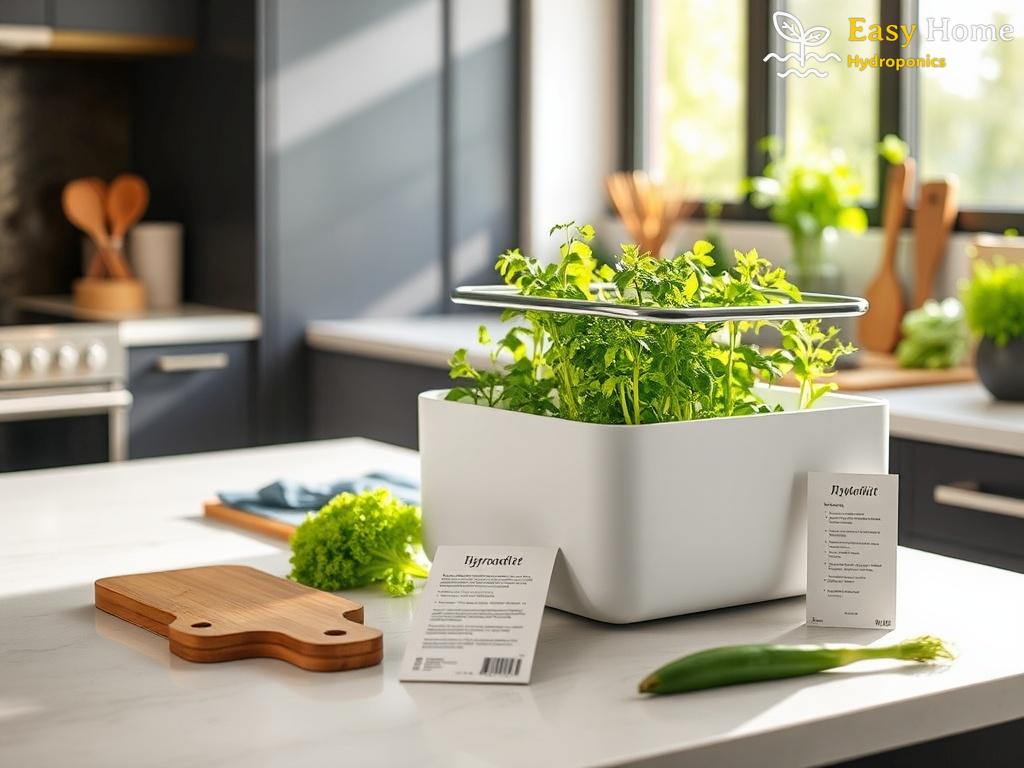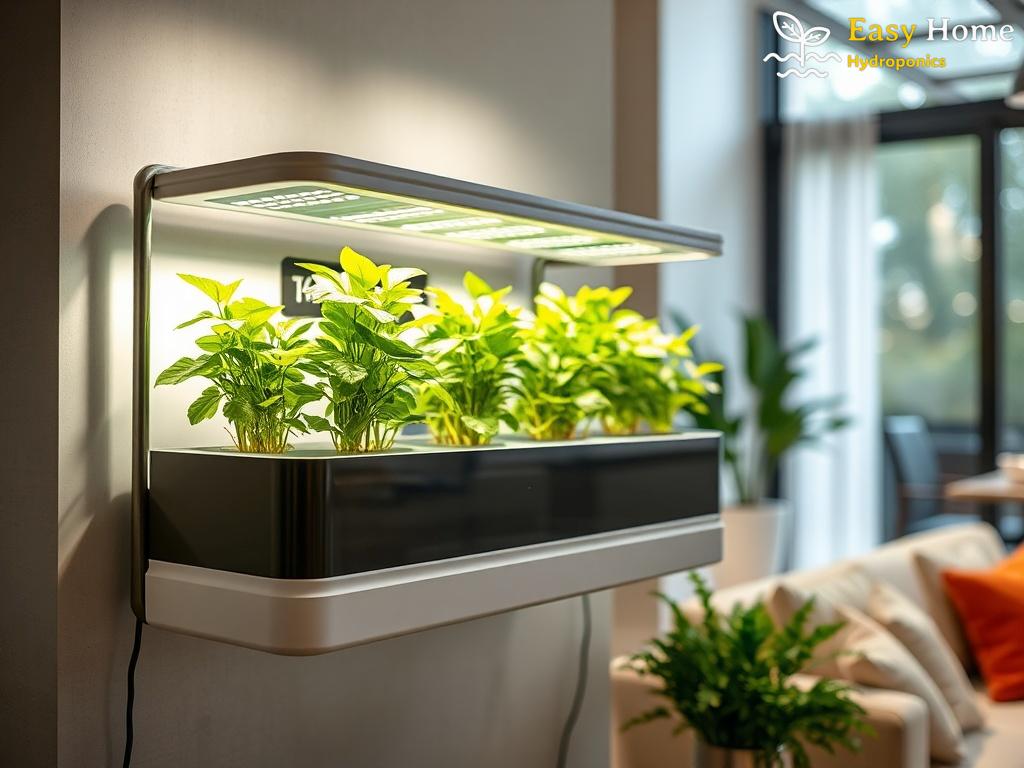The Rise of Hydroponic Tea: A Sustainable Revolution
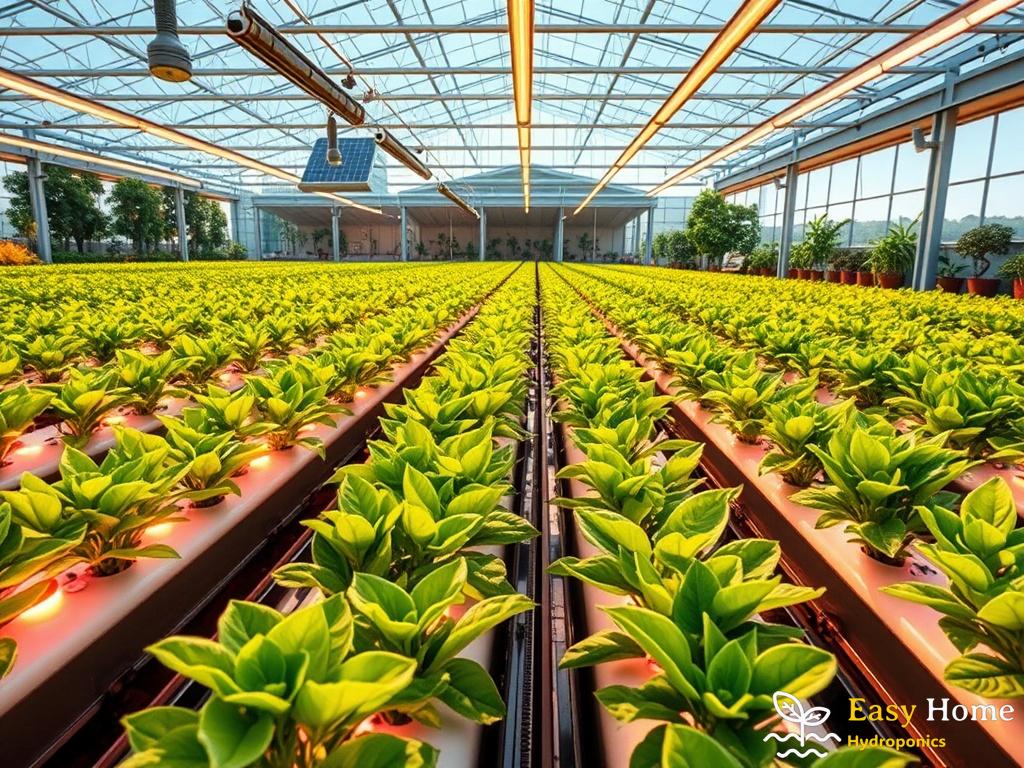
In recent years, the cultivation of tea has witnessed a remarkable transformation with the advent of hydroponic systems. This innovative method not only enhances the efficiency of tea production but also addresses pressing environmental concerns. As traditional farming practices face challenges from climate change and soil degradation, hydroponic tea emerges as a beacon of sustainability and productivity.
Hydroponic tea is capturing the attention of tea enthusiasts and environmentally conscious consumers alike. But what makes this method stand out? Let’s delve into the compelling reasons behind the rising trend:
- Sustainability: Hydroponic systems use significantly less water than traditional farming methods, making them an eco-friendly choice.
- Quality Control: Growing tea in a controlled environment allows for better management of nutrients, leading to superior flavor and aroma.
- Year-Round Production: Hydroponics facilitates continuous growth cycles, enabling tea producers to harvest throughout the year.
- Space Efficiency: Vertical farming techniques used in hydroponics maximize space usage, making it ideal for urban settings.
As with any emerging industry, hydroponic tea cultivation faces its own set of challenges. From initial setup costs to the need for specialized knowledge, aspiring hydroponic farmers must navigate various obstacles. However, the opportunities presented by this innovative approach far outweigh the hurdles. With increasing consumer demand for sustainable products, the market for hydroponic tea is poised for substantial growth.
Brewing Success: Market Trends for Hydroponic Coffee
As consumers become more health-conscious and environmentally aware, the focus on sustainable farming practices has reached new heights. Hydroponic coffee, with its innovative cultivation methods, is gaining traction in the market. This shift not only reflects changing consumer preferences but also signifies a broader trend towards sustainable agriculture. The rise of eco-friendly products like hydroponic coffee is a testament to the evolving landscape of the coffee industry.
The hydroponic coffee market is rapidly evolving, driven by various trends that cater to the modern consumer’s desires. Here are some key factors contributing to the success of hydroponic coffee:
- Health Consciousness: Consumers are increasingly seeking organic and pesticide-free options, making hydroponic coffee an appealing choice.
- Flavor Innovation: Hydroponic cultivation allows for precise control of growth conditions, enhancing the flavor profiles of coffee beans.
- Local Sourcing: With urbanization on the rise, local hydroponic farms can provide fresh coffee to nearby consumers, reducing carbon footprints.
- Technological Advancements: Smart farming technologies are streamlining hydroponic coffee production, making it more accessible and efficient.
The future of hydroponic coffee is bright, with several factors indicating its potential for widespread adoption. However, challenges such as initial investment costs and the need for specialized knowledge remain. As more producers enter the market, the competition will likely drive innovation and improve accessibility for aspiring hydroponic farmers. With the global coffee market expected to grow, hydroponic coffee is well-positioned to capture a significant share.
Cultivating Flavor: The Science Behind Hydroponic Growth
Hydroponic systems have revolutionized the way we cultivate tea and coffee, allowing growers to harness the power of science to produce flavors that are not only rich but also consistently high-quality. By employing controlled environments, hydroponic farming techniques can optimize every aspect of plant growth. This scientific approach ensures that every sip of hydroponic tea or coffee is a delightful experience.
The flavor profile of hydroponically grown tea and coffee is influenced by several key factors. By manipulating variables such as nutrient composition, light exposure, and environmental conditions, growers can unlock the full potential of these beloved beverages. Below are the primary factors that contribute to flavor development in hydroponic cultivation:
- Nutrient Management: The precise control of macronutrients and micronutrients in hydroponic systems leads to enhanced flavor compounds.
- Water Quality: Clean, mineral-rich water is essential, as it impacts the taste and overall quality of the final product.
- Light Conditions: Tailored light spectrums can stimulate specific growth responses, affecting the aromatic and taste characteristics of the plants.
- Temperature Regulation: Maintaining optimal temperatures is crucial for enzymatic activity that influences the development of flavors.
As hydroponic cultivation continues to evolve, technology plays a pivotal role in flavor enhancement. Advanced monitoring systems allow growers to constantly assess and adjust the variables that affect plant growth. With innovations such as automated nutrient delivery and light modulation, the future of hydroponic tea and coffee production is set to reach new heights in flavor complexity.
| Factor | Impact on Flavor |
|---|---|
| Nutrient Management | Essential for the development of aromatic compounds |
| Water Quality | Influences the purity and taste of the beverage |
| Light Conditions | Affects chlorophyll production and flavor profiles |
| Temperature Regulation | Optimizes enzymatic activity for flavor enhancements |
Consumer Preferences: What Drives Hydroponic Beverage Choices?
In the realm of hydroponic beverage production, understanding consumer preferences is crucial for success. As the market for hydroponic tea and coffee expands, it becomes increasingly evident that consumers are not just looking for a refreshing drink; they are seeking an experience that aligns with their values and lifestyle. Factors such as sustainability, flavor quality, and health benefits are shaping the choices of modern consumers, creating a dynamic landscape for hydroponic producers.
Sustainability has transitioned from being a mere buzzword to a fundamental principle guiding consumer choices. Today, consumers are well-informed and actively seek products that reflect their environmental concerns. Hydroponic farming, with its reduced water usage and minimal pesticide application, resonates with this eco-conscious mindset. Many buyers are motivated by the desire to make a positive impact on the planet, opting for hydroponically grown beverages as a way to support sustainable agricultural practices. This shift is not only beneficial for the environment but also enhances the marketability of hydroponic products.
The importance of flavor in determining consumer preferences cannot be overstated. Hydroponically grown tea and coffee offer distinct advantages in flavor development due to the precise control over their growing conditions. Consumers are increasingly discerning, often willing to pay a premium for beverages that deliver rich and complex flavor profiles. With an emphasis on quality, hydroponic producers can experiment with different growth parameters to enhance the taste experience. This approach not only satisfies the palate but also fosters a loyal customer base that seeks out exceptional flavor in every cup.
As health consciousness continues to rise, consumers are gravitating towards beverages that promote well-being. Hydroponic tea and coffee often boast organic and pesticide-free certifications, making them attractive options for those prioritizing health. Additionally, the controlled environments of hydroponic systems can lead to higher nutrient retention in the final product. This emphasis on health not only drives consumer choices but also encourages hydroponic producers to innovate constantly, ensuring their offerings align with the evolving expectations of health-focused consumers.
| Factor | Consumer Impact |
|---|---|
| Sustainability | Aligns with eco-conscious values, boosting market appeal. |
| Flavor Quality | Enhances customer satisfaction, leading to repeat purchases. |
| Health Benefits | Attracts health-conscious buyers, increasing product demand. |
Investing in Green: Opportunities in Hydroponic Agriculture
As the world pivots towards sustainable practices, the hydroponic agriculture sector stands as a beacon of opportunity for investors. This method of cultivation offers unmatched advantages, from resource efficiency to enhanced product quality. With a focus on hydroponic tea and coffee production, investors can tap into a growing market that not only promises financial returns but also contributes positively to the environment.
Investing in hydroponic systems is not merely a financial decision; it is a commitment to fostering innovation in agriculture. Here are some compelling factors that make hydroponic agriculture an attractive investment:
- Reduced Environmental Impact: Hydroponic systems utilize significantly less water and land than traditional farming, making them ideal for regions facing resource scarcity.
- Market Demand: The increasing consumer preference for sustainable and fresh produce drives demand for hydroponically grown tea and coffee.
- Technological Advancements: The integration of smart farming technologies boosts efficiency and production yields, minimizing risks for investors.
- Year-Round Production: Unlike seasonal crops, hydroponics allows for continuous growth cycles, ensuring a steady supply of products.
As the hydroponic agriculture sector continues to evolve, investors must remain vigilant and informed. By aligning with technological advancements and consumer trends, there are substantial opportunities for growth. It’s essential to evaluate potential partnerships with established hydroponic producers and invest in research to innovate further. With the right strategies in place, the future of hydroponic tea and coffee production can be both profitable and sustainable.

